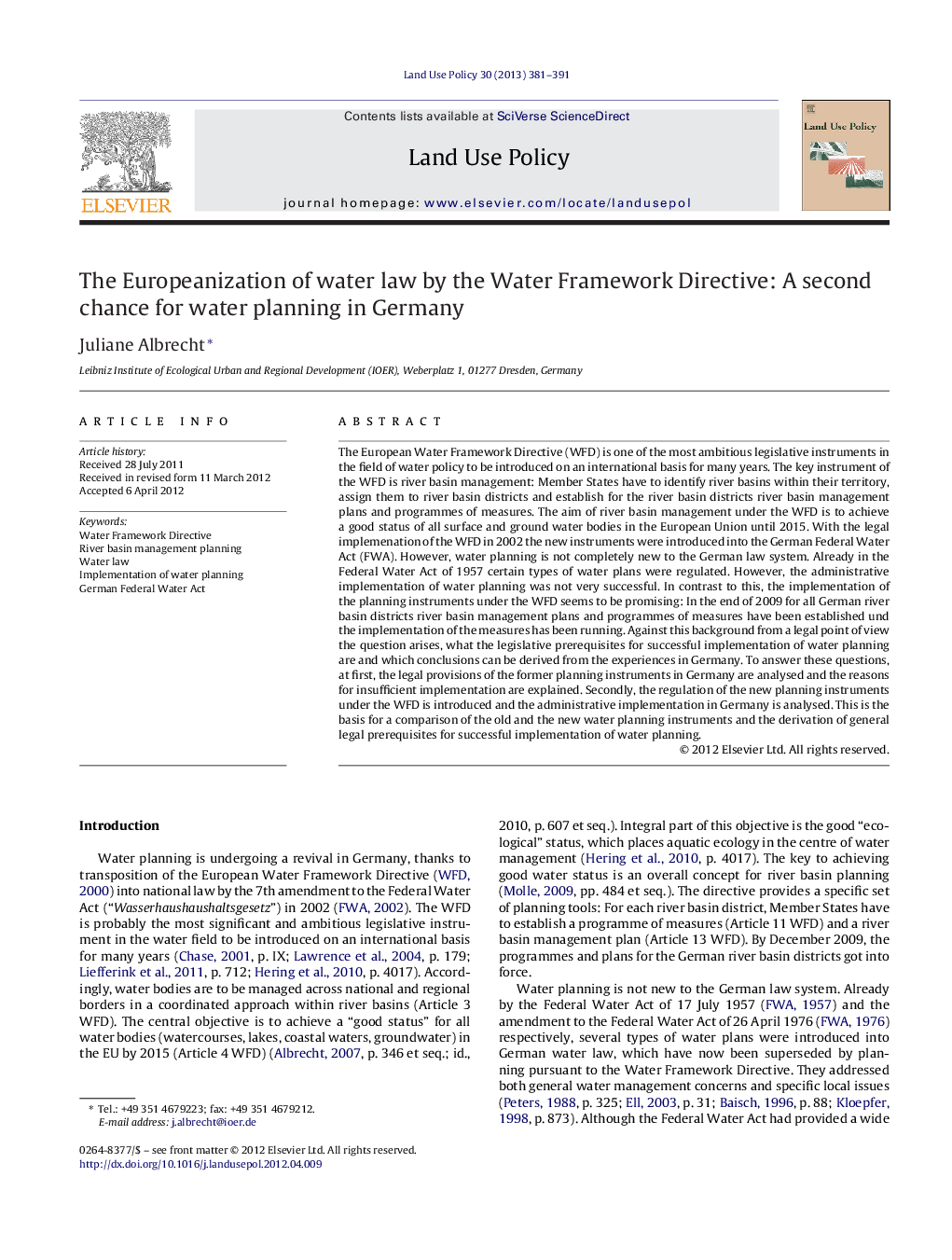| Article ID | Journal | Published Year | Pages | File Type |
|---|---|---|---|---|
| 93000 | Land Use Policy | 2013 | 11 Pages |
The European Water Framework Directive (WFD) is one of the most ambitious legislative instruments in the field of water policy to be introduced on an international basis for many years. The key instrument of the WFD is river basin management: Member States have to identify river basins within their territory, assign them to river basin districts and establish for the river basin districts river basin management plans and programmes of measures. The aim of river basin management under the WFD is to achieve a good status of all surface and ground water bodies in the European Union until 2015. With the legal implemenation of the WFD in 2002 the new instruments were introduced into the German Federal Water Act (FWA). However, water planning is not completely new to the German law system. Already in the Federal Water Act of 1957 certain types of water plans were regulated. However, the administrative implementation of water planning was not very successful. In contrast to this, the implementation of the planning instruments under the WFD seems to be promising: In the end of 2009 for all German river basin districts river basin management plans and programmes of measures have been established und the implementation of the measures has been running. Against this background from a legal point of view the question arises, what the legislative prerequisites for successful implementation of water planning are and which conclusions can be derived from the experiences in Germany. To answer these questions, at first, the legal provisions of the former planning instruments in Germany are analysed and the reasons for insufficient implementation are explained. Secondly, the regulation of the new planning instruments under the WFD is introduced and the administrative implementation in Germany is analysed. This is the basis for a comparison of the old and the new water planning instruments and the derivation of general legal prerequisites for successful implementation of water planning.
► The key to achieving good water status is an overall concept for river basin planning. ► Successful water planning requires appropriate planning depth. ► Implementation of planning is supported by legal requirements. ► Statutory quality objectives contribute to consensus on the targeted water state. ► Target dates and reporting obligations ensure that planning is carried out in time.
